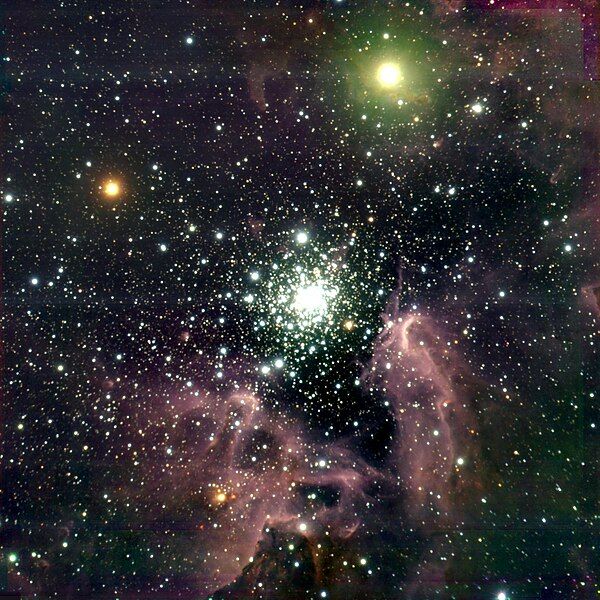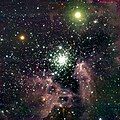File:NGC 3603 Cluster.jpg
Appearance

Size of this preview: 600 × 600 pixels. Other resolutions: 240 × 240 pixels | 480 × 480 pixels | 768 × 768 pixels | 1,024 × 1,024 pixels | 1,600 × 1,600 pixels.
Original file (1,600 × 1,600 pixels, file size: 441 KB, MIME type: image/jpeg)
File history
Click on a date/time to view the file as it appeared at that time.
| Date/Time | Thumbnail | Dimensions | User | Comment | |
|---|---|---|---|---|---|
| current | 13:22, 16 September 2008 |  | 1,600 × 1,600 (441 KB) | Lars Lindberg Christensen | {{Information |Description={{en|1=Image of the NGC 3603 region were obtained in three near-IR filter bands (Js, H and Ks) with the ISAAC instrument at the ANTU telescope. NGC 3603 is located in the Carina spiral arm in the Milky Way galaxy at a distance |
File usage
The following page uses this file:
Global file usage
The following other wikis use this file:
- Usage on ast.wikipedia.org
- Usage on az.wikipedia.org
- Usage on ca.wikipedia.org
- Usage on en.wikiversity.org
- Usage on es.wikipedia.org
- Usage on gl.wikipedia.org
- Usage on kk.wikipedia.org
- Usage on pt.wikipedia.org
- Usage on uk.wikipedia.org
- Usage on zh.wikipedia.org

